The foundation of digital finance transformation
Data management

How to get my data under control
Data is the oil of the twentieth century, the raw material for new technologies that is revolutionising business processes and new digital products – and the finance function is no exception. Data is redefining the role of CFOs: they are becoming strategic advisers, sparring partners, inventors and catalysts of innovation and growth at corporate level. They are responsible for business-critical data that can be analysed instantaneously, allowing extensive forecasts and simulations which open up huge opportunities for the finance function of the future.
All of this needs to be based on an effective and efficient data management system. Today, all relevant information has to be made available in every process step at the right time, in the right place and at the required level of quality. How the data is handled is crucial for success. Innovation through new technologies requires new and improved data, better organized data, data with fast access and data of excellent quality.
The PwC Data Excellence Framework is the blueprint on the way to the new data-driven finance function of the future:
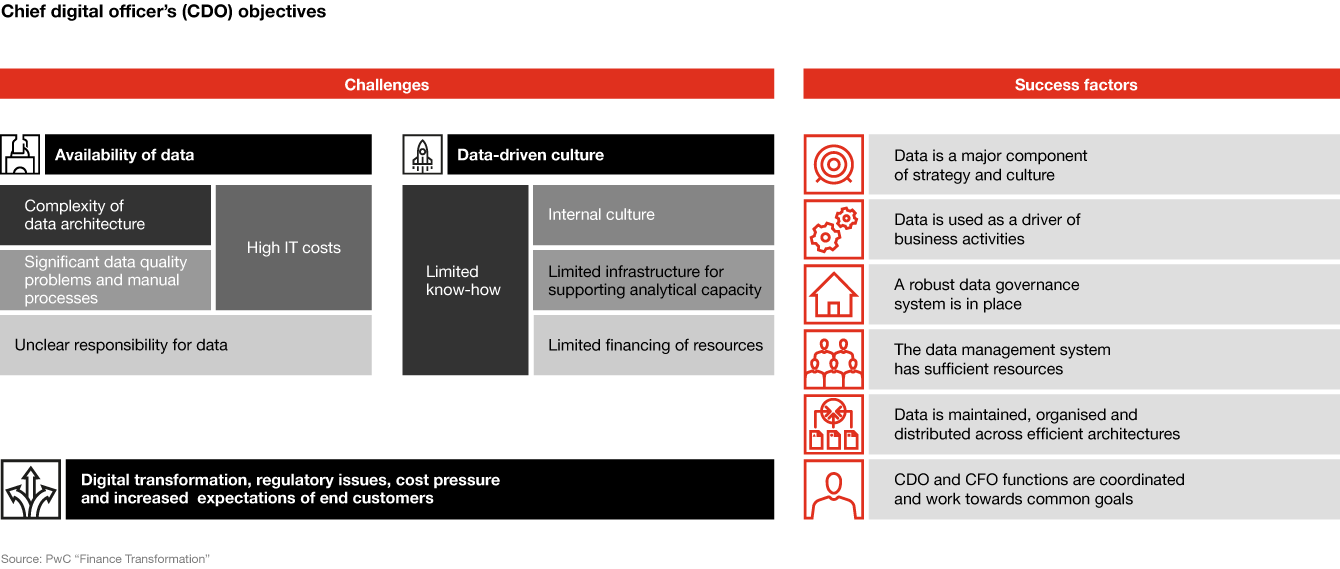
In addition to the fundamental challenges to robust data management, there are also significant barriers to innovation that need to be overcome to enable further development of data management. Our Data Excellence Framework addresses this combination head-on, helping to build a data management system fit for the future.
Data management – a holistic approach
We at PwC can help you overcome these hurdles by pursuing holistic, structured approaches and solutions while also taking your individual requirements into account. Under our approach, data management covers all processes from generation and validation to protecting and processing your data, to ensure accessibility, reliability and timeliness.
Data management framework
- Data strategy
- Data architecture
- Data governance
- Data process management
- Data quality
- Data security and privacy
Data strategy
Data strategy defines the vision and roadmap for data management transformation to increase corporate value and act as the engine for business strategy across the dimensions of people, processes, technology and culture.
Your data strategy needs to be aligned with your business strategy – which defines your priorities for data management – whilst also reflecting the relevant (mega) trends, innovations and technological developments that are creating new data potential.The orientation and goals of the data strategy are defined by means of assessments and expert interviews. Once the key data-driven accelerators and challenges have been identified for driving your strategy forwards, the design phase can start: strategic vision, interim goals and action plans are defined for the components of your data management system based on the dimensions of people, processes, technology and culture. A roadmap is then prepared for operationalising these aims based on capacity, resources and forthcoming initiatives. KPIs that allow strategy adoption to be measured and incentivised are then created to ensure long-term sustainability.
Your benefits:
- Targeted and coordinated methodology for executing a successful data management transformation
- Transparency on the value contribution of your data management initiatives
- Operationalisation and consistency of strategic measures, along with measurable KPIs on strategy adoption for long-term sustainability
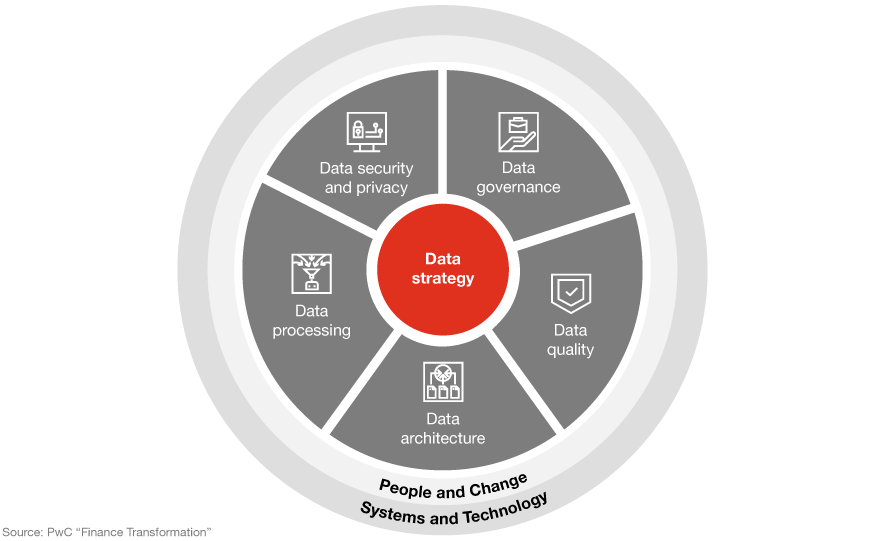
Data architecture
Defining a holistic data architecture to provide a harmonized and consolidated view of your data
Before this can happen, a comprehensive strategy needs to be developed on how all data generated in your company can be centrally gathered, stored and made available for further analytical steps. This must take into account master and transactional data as well as structured and unstructured data.
The goal is a standardised, company-wide data model,which can, however, be flexibly adapted to local requirements of our customers if necessary.
Your benefits:
- Single source of truth
- Greater transparency with regard to data origin and data use
- Extensibility with new data sources
- Avoidance of redundant data
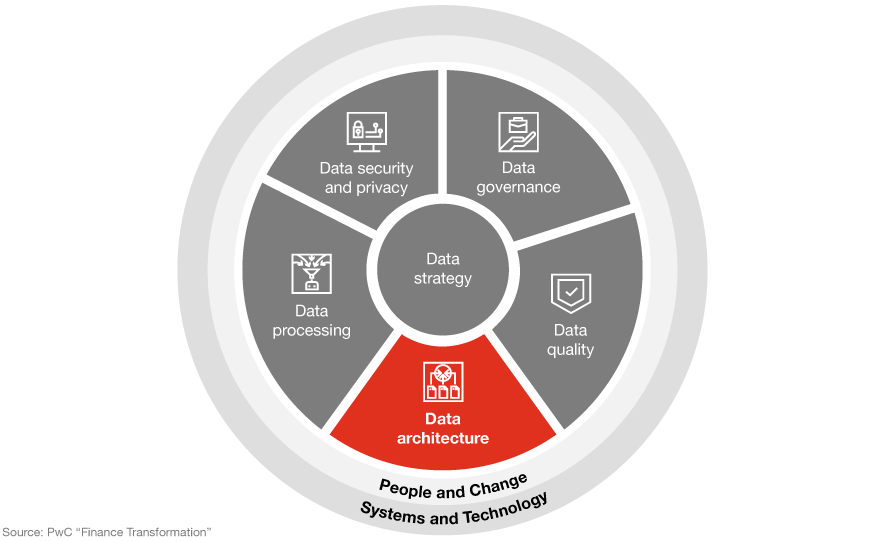
Data governance
Implementing an organisational structure with clear policies, roles and responsibilities for handling data
The focus here is on the concept of "data ownership". The people responsible for data within your company need to be clearly identified and given the knowledge and skills they need to carry out their role throughout the process chain. It’s also important to ensure data governance is firmly anchored within your organisation by setting up a single point of contact for all internal and external data-related questions.
We also recommend defining company-wide standard processes and methods for handling data.
Your benefits:
- Reduction of administrative efforts by defining clear responsibilities
- Company-wide, standardized handling of data
- Improvement of stakeholder awareness in dealing with data management issues
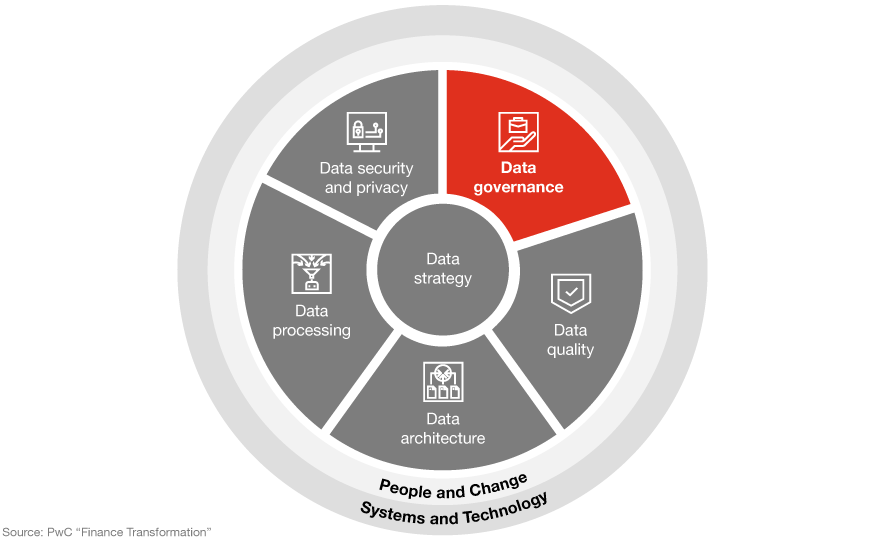
Data process management
Controlling, harmonising and optimising business and data management requirements throughout the data life cycle
We support you in establishing standardized data management processes including controls to ensure compliance with process requirements. In addition, we advise on the selection and introduction of tools regarding modelling, metadata management, process documentation and reporting in your company.
We implement necessary boards to dissolve functional data silos and work with you to build ad-hoc reporting processes in terms of addressee-oriented internal and external reporting.
Your benefits:
- Cost-efficient, synchronised end-to-end implementation of (ad-hoc) requests
- Improved support for corporate management through comprehensible reporting and data quality
- Continuous improvement of data management processes in global companies
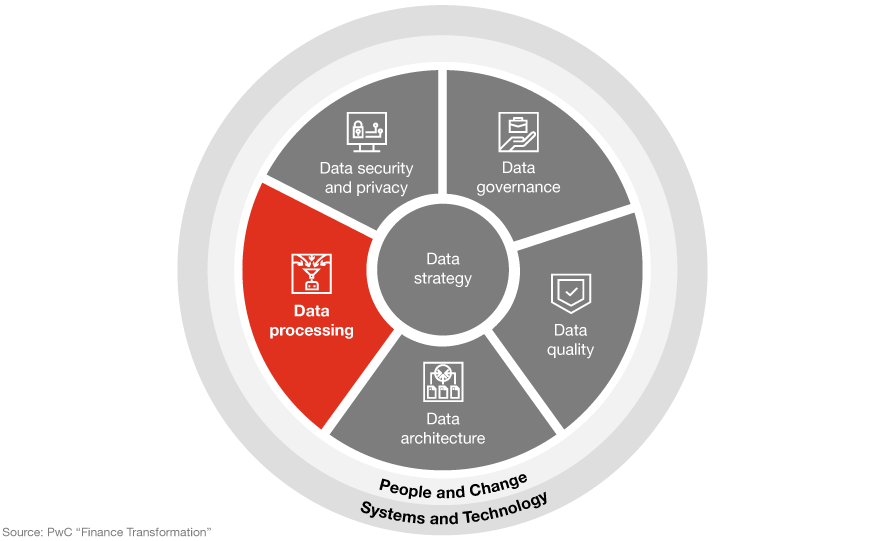
Data quality
Creating an assessment framework for evaluating data quality
Together we define individual data quality criteria, taking into account all processes and IT systems, in order to derive a target level for data quality. We then ensure that quality is continuously cross-checked against this target during day-to-day operations, and implement a data quality reporting system. Based on this reporting system, we support you in definingmeasures to sustainably improve your data quality.
In addition, we can also support you with short-term quality improvements that may be necessary, for example, in the course of an S/4HANA transformation.
Your benefits:
- Future avoidance of data quality deficiencies.
- Freeing up resources, as fewer employees are required for error research and correction
- Improved basis for decision-making
- Automated data quality management
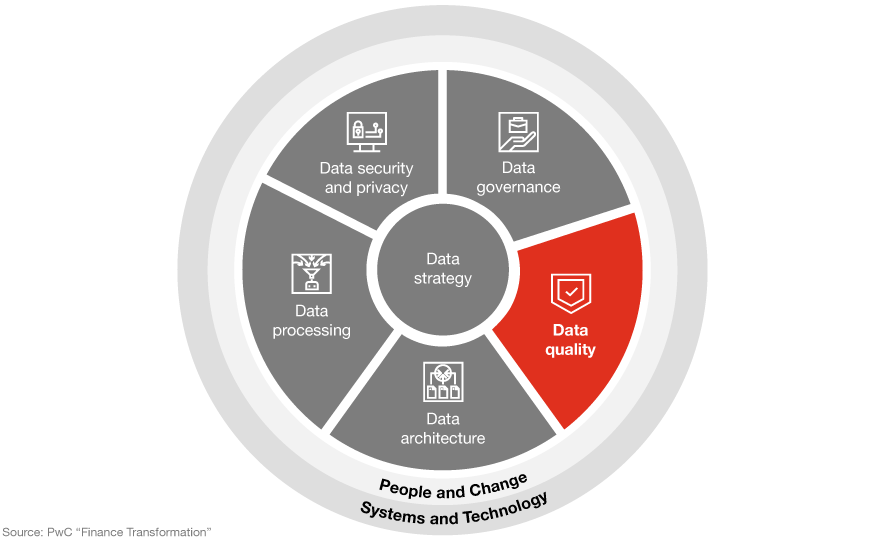
Data security and privacy
Implementation of security measures and monitoring processes
A crucial aspect in this area is the definition of access rights based on a business-oriented role concept to protect your data from unauthorized access. We support those responsible for data in protection needs analyses and advise you in the conflicting areas of regulatory framework conditions and competitive business models.
We also take care of IT security aspects such as creating backups, setting up firewalls and anti-virus software, and performing regular updates.
Your benefits:
- Minimization of risks, e.g. due to data manipulation or failure
- Compliance with regulatory requirements (HGB, BDSG, GDPR, etc.)
- Security with regard to the permissibility of data transfer (internal and external)
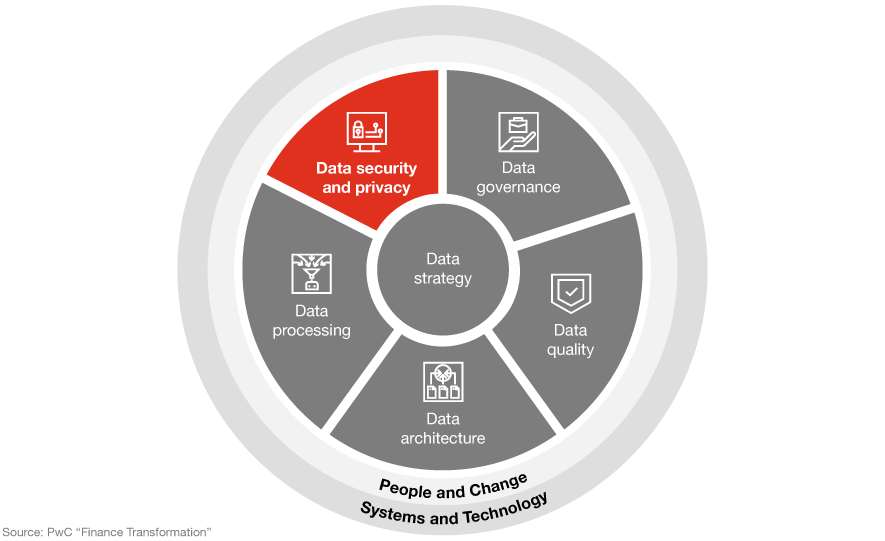
“Data & analytics are becoming increasingly important. The key success factor today is effective data management. Harmonizing and presenting a wide variety of data sources in an end-to-end process will be the decisive difference that makes successful companies.”
Felix Blume,Senior Manager at PwC Germany











